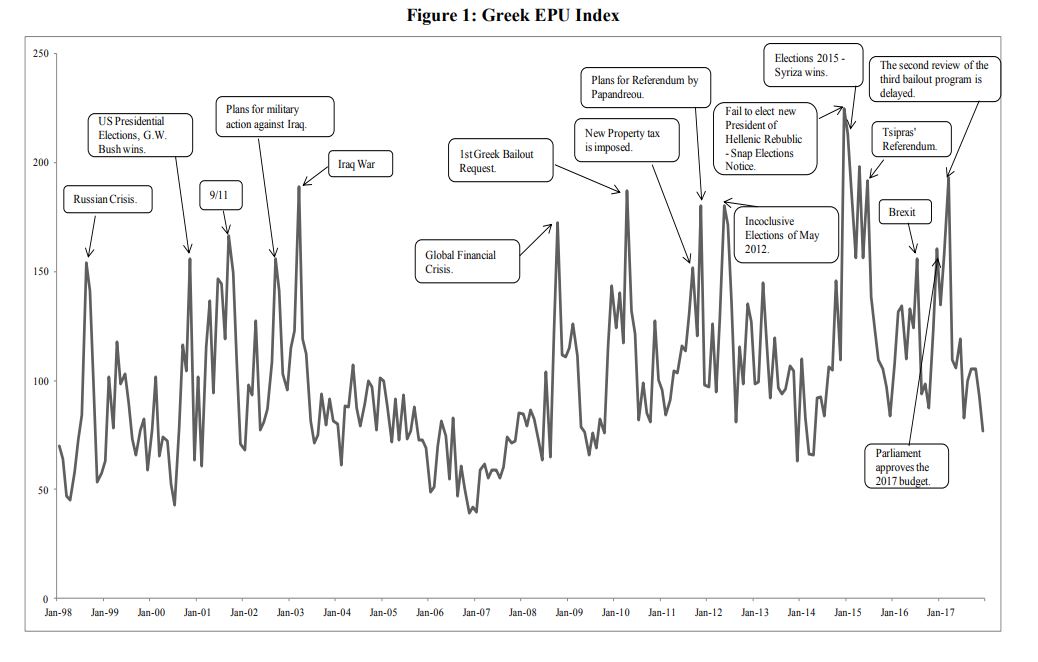Economic Policy Uncertainty, Political Uncertainty and the Greek Economic Crisis
Gikas A. Hardouvelis, Georgios I. Karalas, Dimitrios I. Karanastasis, Panagiotis K. Samartzis
April 2018
Abstract:
We use textual analysis to construct an index of economic policy uncertainty
(EPU) for Greece from 1/1998 to 12/2017, similar to other international EPU indices.
We also construct indices of political uncertainty (POLU) and economic uncertainty
(EU), plus EPU sub-indices related to fiscal policy (EPUF), monetary policy (EPUM),
banking (EPUB), currency or Grexit possibility (EPUC), and pension policy (EPUP).
The indices are positively correlated yet retain substantial idiosyncratic variability.
With the exception of EPUM, they all rose during the international and subsequent
Greek crisis. There is also positive correlation of EPU with international EPU indices,
which rose in the international crisis but, as expected, declined during the Greek
crisis.
Positive shocks to EPU and to the other indices are associated with a
subsequent decline in investment, industrial production, GDP, employment,
household deposits, economic sentiment and the stock market, and with an increase in
bond yields. These shocks go a long way to explain not only the direction but the
magnitude of the changes in macro and financial variables during the crisis. A VAR
forecast error variance decomposition over a three-year horizon suggests uncertainty
together with bond yields may explain not only the depth but the length of the crisis as
well.
Keywords: Economic Policy Uncertainty, Political Uncertainty, Economic
Uncertainty, Macro-economy, Greece, Grexit, Debt Crisis, Banking
Crisis, Pension Crisis, Tax Uncertainty, Fiscal Crisis, Currency Crisis,
Bond Spreads, Economic Depression
JEL Classification: D80, E50, E66, G18


